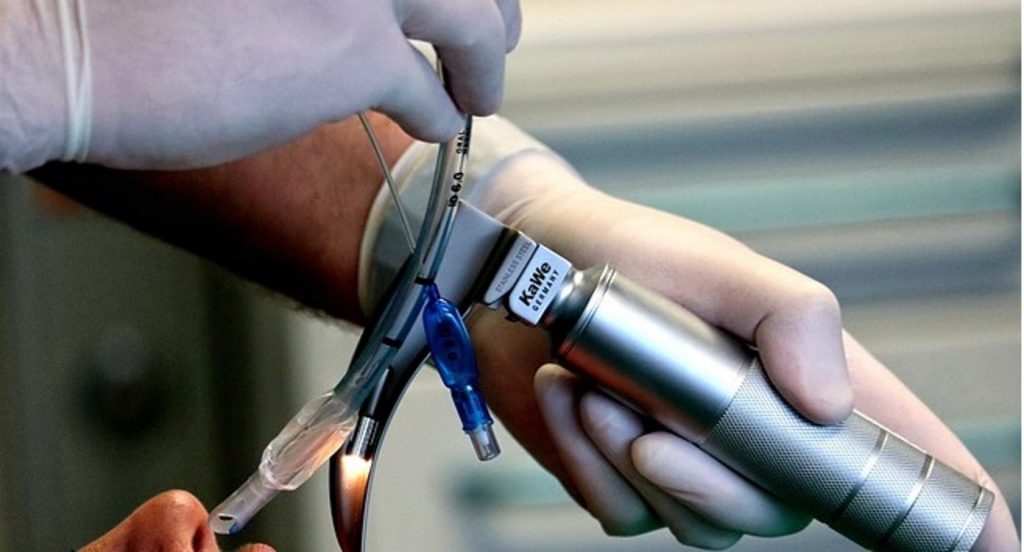Dr. Obteen Nassiri runs training events for physicians at a leading-edge Las Vegas facility, where the latest surgical techniques and innovations are taught to attendees. Below, Dr. Nassiri explains the latest happenings related to anesthesiology.
Perhaps the most vital aspect of all perioperative care, anesthesiology is a finely tuned discipline that is forever changing, thanks to advances in both technology and protocol.
As a result, it’s important to stay up to date with the very latest in anesthesiology news, as we look at some of the top stories in the world of anesthesiology today.
Virtual Reality: The Future is Here
Dr. Obteen Nassiri reports that while we’ve often thought that virtual reality belongs in the future as a sci-fi dream, there’s evidence that the time for its use is already here.
The University of Saskatchewan has reported that particularly for its rural physicians and anesthesiologists, virtual reality technology is proving to be an indispensable tool for retraining and refreshing.
With just a computer and a virtual headset, even the most remotely located doctors can join in collaborative, simulated scenarios to stay on top of the most effective treatments and newest procedures in the field.
Rural Canada has long struggled with equipping its hospitals and clinics with both the personal and the technology required according to Dr. Obteen Nassiri, but it would appear that with the introduction of these forward-thinking techniques, that may be about to change.
By bringing in these new methods, says assistant professor Dr. Peter Hedlin, MD., “physicians… may view the rural locations as less isolated communities to practice medicine in.”
Single Site Surgeons Showing Lower Readmission Rates
Whatever the profession, it can be said that spreading oneself too thinly is bound to have an impact on the quality of the work.
Dr. Obteen Nassiri explains that this has been proven in the case of new research conducted by Ava Ferguson Bryan, MD., general surgery resident at the University of Chicago, whose research at the Harvard T.H. Chan School of Public Health has questioned the continuity of care provided by MSS.
MSS, or Multiple Site Surgeons, are seeing greater numbers of patient readmissions compared to SSS, or Single Site Surgeons. This is leading to professionals questioning the rates of care provided by a fragmented health service.
While some argue that the levels of care should be equally high regardless of MSS or SSS status, it raises vital questions regarding the future of recruitment tactics of US hospitals.
Longer Life Expectancy a Problem for Anesthesiologists
Dr. Obteen Nassiri reports that Dutch anesthesiologists have completed a survey in which 136 respondents commented on how the increase in frailty among patients is impacting their work.
Frailty, which is the term given to a loss of functional reserve, is usually a symptom of advancing age. But with higher numbers of aged patients than ever before, anesthesiologists are having to manage their needs differently.
With
76% of respondents agreeing that frailty in patients presents a challenge, there’s little doubt that more involvement of anesthesiologists will improve the efficacy of perioperative care.


Anesthesiologists Urged to Embrace Patients with OUD
While America battles its opiate crisis, anesthesiologists are being guided in the encouraging patients with Opiate Use Disorder to initiate buprenorphine treatment after surgery, before being discharged from the hospital.
Dr. Obteen Nassiri explains that the FDA-approved buprenorphine is an opioid that’s used to treat OUD, and works similarly to methadone, only methadone is a fully synthetic compound, buprenorphine only partially so.
It’s been proven that buprenorphine is safer in its use than methadone but given the currently unknown efficacy of its analgesic effects, it has thus far been used with great apprehension by anesthesiologists.
Jerome Adams MD, MPH, Former Surgeon General, put forward the need for the review of anesthesiology in conjunction with those struggling with OUD.
Dr. Obteen Nassiri says the findings have revealed that with the use of buprenorphine, anesthesiologists can contribute positively to the recovery of OUD sufferers within the perioperative arena.
The Cost of Technological Advances
New advances in technology, despite their effective use in the field of surgery and anesthesiology, are taking their financial toll on an already burdened health system according to Dr. Obteen Nassiri.
And yet a new article from Robert H. Schmerling, MD., Senior Faculty Editor at Harvard Publishing, posits that focusing on the wonders of modern technology may be coming at the cost of health, too.
This is due to the concentration on technology taking the place of preventative medicine. With better tools at the disposal of surgeons and anesthesiologists, Schmerling surmises that the gulf between those who can afford health care and those who can’t is widening.
Dr. Obteen Nassiri explains that expensive technology requires an expensive health system, and it’s thought that the emphasis on technology and specialty care is taking the place of the use of preventative measures, including mental health, nutrition, and physical exercise, to name but a few.
Asking such questions as whether the health care system is broken, Schmerling is adamant about one thing: there’s no simple solution.

